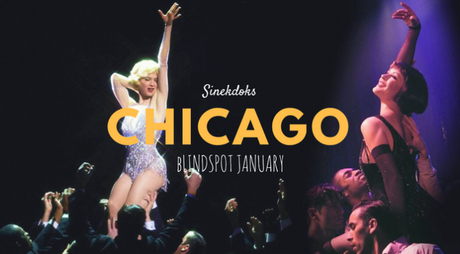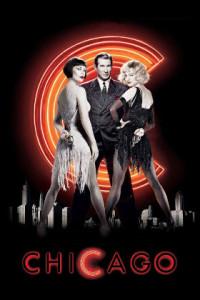
"C'mon, Babe, why don't we paint the town... and all that Jazz!" Velma Kelly sings on the stage.
In the 75 th Academy Awards, Rob Marshall's Chicago triumphed over with six winnings, including Best Picture, overpowering strong contenders like The Pianist, Gangs of New York, and Lord of the Rings: The Two Towers. Chicago becomes the second musical to win Best Picture after 1968's Oliver!; and together with Moulin Rouge, it is responsible for the reemergence of musical film in modern days.
As a musical that works in multiple levels, this Broadway adaptation feels jazzy and sassy at the same time. Chicago centers on the intertwined life of two women - two murderesses: Roxie Hart (Renée Zellweger), a starstruck housewife who killed her deceptive, secret lover, and Velma Kelly (Catherine Zeta-Jones), a vaudevillian who committed double homicide towards her husband and sister. Those women, who met in the same jail, fight each other in order to win the pink slip to freedom and eventual fame.
I am still fascinated how Chicago is presented as a comedy, which often tends to be a satire, despite its dire theme about prison life and consequences. How some musical elements pave the way to bridge the reality and 'musical dimension' is instant classic; although some nods might not seem realistic at all. Rob Marshall, a playwright and choreographer himself, transliterates the musical into a delightful cinematic spectacle that looks violence and jazzy, without stripping off its satirical content.
Chicago, beyond its jingle and jangle as well as it jawdropping sensual choreography, radicalizes the thought that media plays significant part in creating the 'ideal truth' in criminal cases. It's often displayed in how Richard Gere's lawyer character exploits media to stand on his stances; when media follows his bait, truth is easier to shape. There's a scene where Richard Gere in a musical act performs as a puppet master and the media as well as his clientele become marionettes on his strings.
Fame also becomes a significant theme in Chicago as all these hustles and bustles originated from it and lead it. Fame inflicts a conflict; conflict results in tragedy; tragedy is exploited to gain fame; that's the rule of the game. It's a playful, cruel circle depicted with songs and raw dances with playful and cruel lyrics.
At some points, Chicago also points out sexuality as one thing to drive opinion and fame. Women are often objectified for this and, at some points, fall victim into this thought, which leads to their self-objectification. Rob Marshall grabs this sentiment strictly at mind as he crafts a raw, bawdy, and often salacious choreography that represent how grim the theme is. With art directions as well camera works that capture the same spirit, Rob Marshall has crafted Chicago as a perfect musical satire with a consistent theme.
It's a big coincidence that I finally watched Chicago during one of the best musical of the modern day's campaign. While both are musicals, they're off the different origins and genre, but I'm glad they're all great.
Chicago (2002)


Comedy, Crime, Musical Directed by: Rob Marshall Written by: Bill Condon Starred by: Renée Zellweger, Catherine Zeta-Jones , Richard Gere Runtime: 113 mins Rated PG-13
